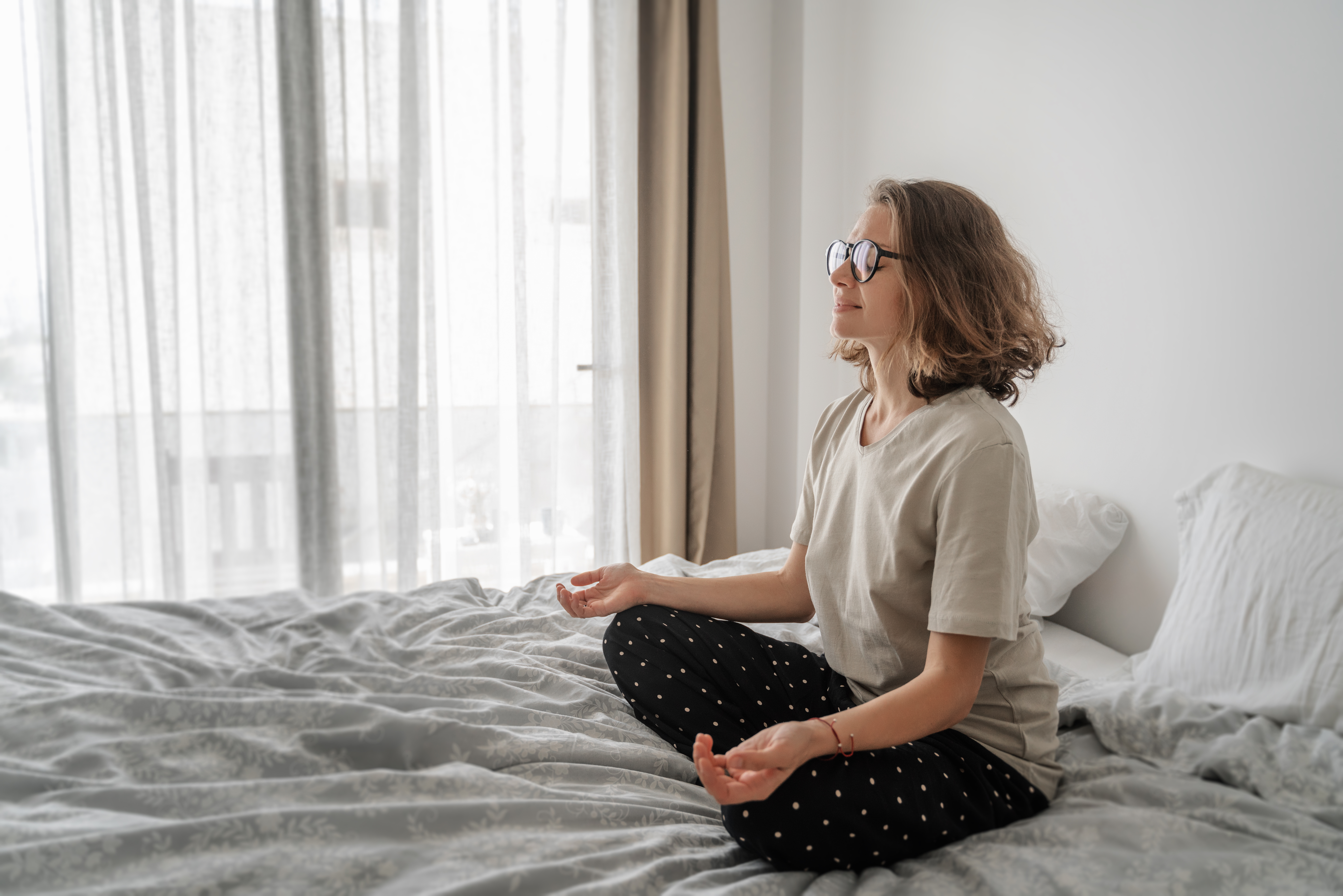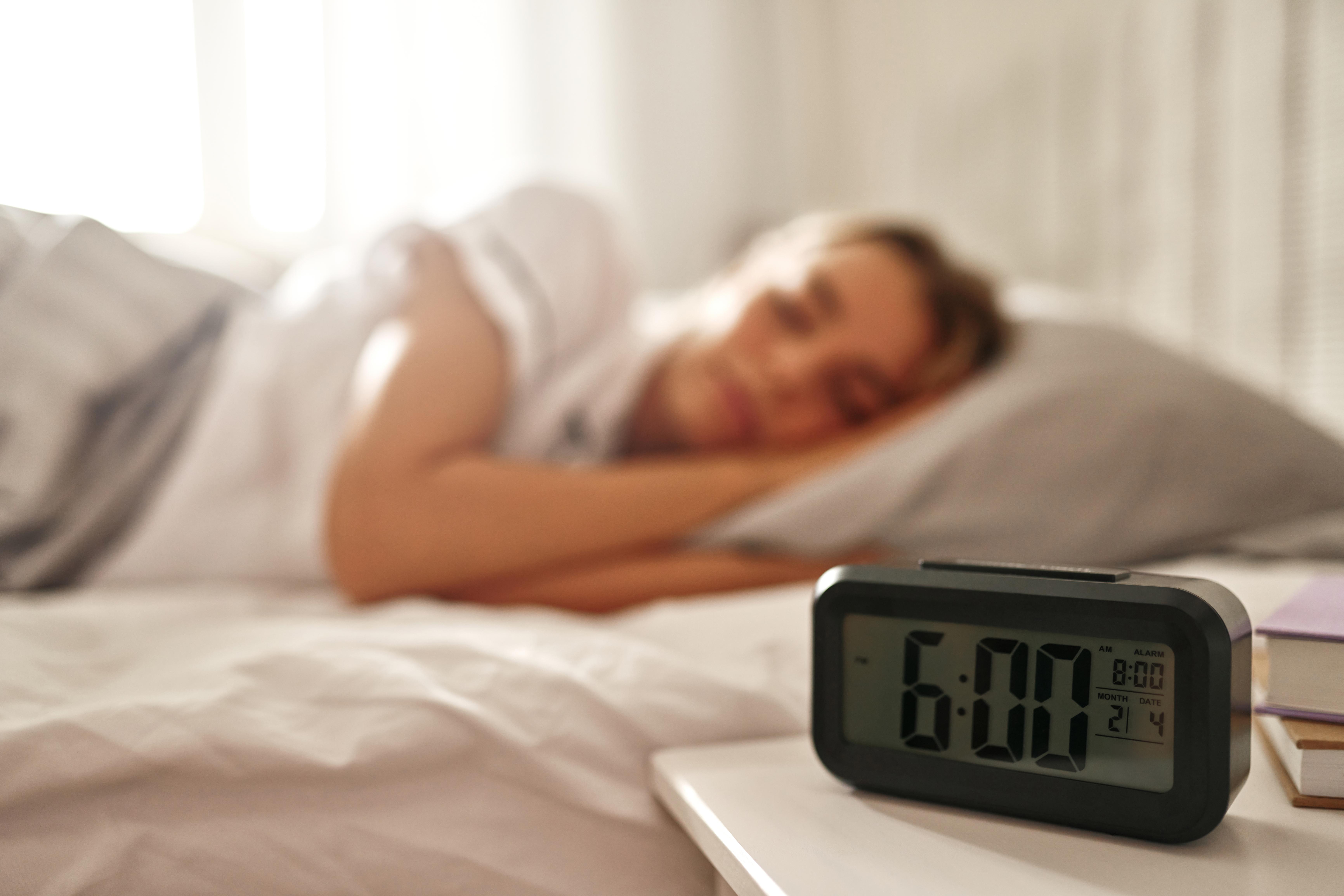10 Proven Strategies to Finally Defeat Insomnia and Sleep Like a Dream
Insomnia, a prevalent sleep disorder, affects millions worldwide, disrupting daily lives and leading to a myriad of health issues. The modern lifestyle, characterized by high stress, excessive screen time, and irregular sleeping patterns, has exacerbated this condition. Insomnia is not merely a matter of inconvenience; it can have profound impacts on mental and physical well-being. Understanding the root causes and implications of insomnia is crucial in tackling this pervasive issue. This article delves into 10 effective strategies, backed by research, to help you conquer insomnia and achieve restful sleep. By adopting these approaches, you can transform your nights into periods of rejuvenation and your days into productive, energetic experiences.
1. The Science of Sleep: Why We Need It

Sleep is a fundamental biological process, essential for cognitive function, emotional regulation, and physical health. During sleep, the body undergoes critical restorative processes, including muscle repair, memory consolidation, and the release of growth hormones. Lack of sleep can result in impaired memory, mood swings, weakened immunity, and increased risk of chronic conditions such as obesity and heart disease. Understanding the sleep cycle, which comprises REM and non-REM stages, is vital for addressing insomnia. Each stage plays a specific role, from deep restorative sleep to dream-filled REM sleep, highlighting the necessity of a full, uninterrupted sleep cycle for overall health.
2. Establishing a Sleep-Inducing Environment

Creating a conducive sleep environment is a foundational step in overcoming insomnia. The bedroom should be a sanctuary for rest, free from distractions and conducive to relaxation. Factors such as temperature, lighting, and noise levels significantly affect sleep quality. A cool, dark, and quiet room promotes better sleep. Investing in comfortable bedding and minimizing electronic device usage before bed can enhance the sleep environment. Additionally, incorporating calming scents like lavender or chamomile can further promote relaxation. By optimizing your sleep environment, you set the stage for a night of restful and uninterrupted sleep.
3. The Role of Diet and Nutrition in Sleep

Diet and nutrition play a crucial role in sleep quality. Consuming a balanced diet rich in sleep-promoting nutrients such as magnesium, calcium, and tryptophan can enhance sleep. Foods like almonds, bananas, and turkey are known for their sleep-inducing properties. Conversely, avoiding caffeine and heavy meals close to bedtime can prevent sleep disturbances. Hydration is also key; however, excessive fluid intake before bed should be avoided to reduce nighttime awakenings. Understanding the relationship between diet and sleep allows you to make informed choices that support your journey to overcoming insomnia.
4. Exercise: Nature's Sleep Aid

Regular physical activity is a powerful tool in combating insomnia. Exercise helps regulate the body's internal clock, reduces stress, and promotes deeper sleep. Engaging in moderate aerobic exercises such as walking, swimming, or cycling can significantly improve sleep quality. However, timing is crucial; exercising too close to bedtime may have the opposite effect by increasing alertness. Aim for at least 30 minutes of exercise most days, ideally in the morning or afternoon. By incorporating regular physical activity into your routine, you can harness its sleep-enhancing benefits and pave the way for restful nights.
5. Mindfulness and Meditation: Calming the Mind

Mindfulness and meditation are effective strategies for reducing stress and calming the mind, essential components in addressing insomnia. These practices involve focusing on the present moment and cultivating a sense of inner peace. Techniques such as deep breathing, progressive muscle relaxation, and guided imagery can help ease the transition into sleep. Regular mindfulness practice has been shown to decrease anxiety and improve sleep quality. By integrating mindfulness and meditation into your daily routine, you can create a mental environment conducive to relaxation and sleep.
6. Cognitive Behavioral Therapy for Insomnia (CBT-I)

Cognitive Behavioral Therapy for Insomnia (CBT-I) is a structured, evidence-based approach that addresses the thoughts and behaviors contributing to insomnia. CBT-I involves identifying and altering negative thought patterns and establishing healthy sleep habits. Techniques include stimulus control, sleep restriction, and cognitive restructuring. Research shows that CBT-I is highly effective in treating chronic insomnia, often yielding long-term improvements in sleep quality. By working with a trained therapist or utilizing self-help resources, individuals can learn to manage insomnia through this transformative therapy.
7. The Impact of Technology on Sleep

The pervasive use of technology in modern life has a significant impact on sleep. The blue light emitted by screens interferes with the production of melatonin, the hormone responsible for regulating sleep-wake cycles. Reducing screen time and implementing a digital curfew at least an hour before bed can mitigate these effects. Utilizing blue light filters and engaging in technology-free activities, such as reading or journaling, can also promote better sleep. Understanding the relationship between technology and sleep allows you to make conscious choices that support healthy sleep patterns.
8. The Power of Routine: Establishing a Sleep Schedule

Consistency is key in regulating the body's internal clock and improving sleep quality. Establishing a regular sleep schedule involves going to bed and waking up at the same time each day, even on weekends. This routine helps synchronize your circadian rhythm, making it easier to fall asleep and wake up naturally. Incorporating a relaxing pre-sleep routine, such as taking a warm bath or practicing gentle yoga, can signal to your body that it's time to wind down. By prioritizing a consistent sleep schedule, you create a stable foundation for restful sleep.
9. Herbal Remedies and Supplements

Herbal remedies and supplements can provide additional support in managing insomnia. Natural options such as valerian root, melatonin, and chamomile have been used for centuries to promote relaxation and improve sleep quality. While these remedies can be effective, it's essential to approach them with caution and consult a healthcare professional, especially if you are taking other medications. Understanding the potential benefits and risks of herbal remedies allows you to make informed decisions about incorporating them into your sleep strategy.
10. Journaling: Clearing the Mind Before Bed

Journaling before bed can be a powerful tool in the battle against insomnia. For many, sleeplessness stems from an overactive mind filled with worries, to-do lists, or lingering emotions from the day. Putting pen to paper allows you to externalize these thoughts, reducing mental clutter and anxiety. Whether it's a gratitude list, a reflection on your day, or simply free-writing your thoughts, this nightly ritual can create a sense of closure and calm. Over time, journaling can condition your brain to associate the act with winding down, signaling it's time for rest. This simple, introspective practice can be a gateway to a more peaceful night’s sleep.
Embracing a Holistic Approach to Sleep

Conquering insomnia requires a comprehensive, holistic approach that addresses the various factors influencing sleep. By implementing the strategies outlined in this article, you can create a personalized sleep plan that promotes restful, rejuvenating sleep. From optimizing your sleep environment and diet to integrating mindfulness and establishing a consistent routine, each strategy plays a vital role in overcoming insomnia. Embrace these dream-inducing strategies, and transform your nights into periods of restoration and your days into vibrant, energetic experiences. With commitment and consistency, restful sleep is within reach, empowering you to live a healthier, more fulfilling life.
